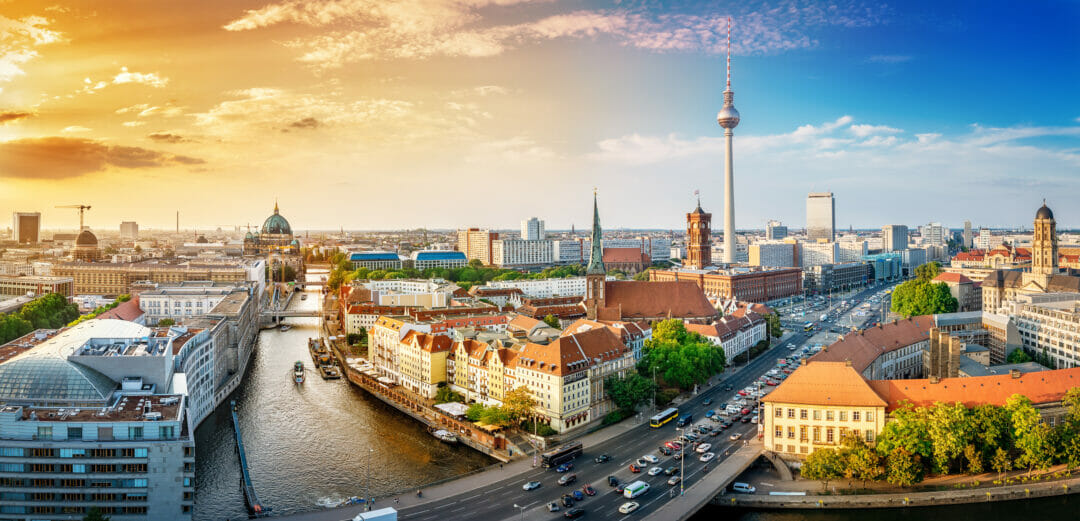There’s no denying that Berlin is an amazing city. Whether you’re looking to work in the bustling startup scene or are a fan of the city’s vibrant culture and nightlife, Berlin is the place to be for anyone looking for an exciting career in tech.
Berlin has a booming tech scene (it’s been referred to as the tech capital of Europe!). In fact, a new tech start-up is founded in the city every 20 minutes. The industry had produced 100,000 jobs by 2020, with no sign of slowing. Most of Berlin’s fast-growing start-up scene is located around Torstrasse, also known as Silicon Alley.
So, if you are considering a move to the German capital, there may be a few things you need to know about what life would be like.
First off, here are some of the hottest tech startups in Berlin:
Wonder
Founded in 2020, Wonder taps into a very current trend: advanced video conferencing. Thousands of users can converse – and instead of all facing each other like in a Zoom call, they can jump between conversations in video, audio or text.
Planetly
Planetly builds software to help businesses manage their carbon footprint; it’s a “holistic carbon management system,” says co-founder and chief customer officer Anna Alex. Alex came up with the idea when trying to offset the carbon footprint of a previous company.
Charles
Charles is a conversational-commerce company that helps businesses sell on WhatsApp and other chat apps. Founders Artjem Weissbeck and Andreas Tussing explain that in 2019 they launched Europe’s first WhatsApp store, where you could buy basic clothing.
What will your commute look like?
According to Moovit, Berliners spend 62 minutes on average commuting to and from work every day (pre-COVID, naturally). This is just behind the Paris average, which stands at 64 minutes.
Most commutes in the city are relatively short. The average distance for a single journey on public transport is 9.1km. In fact, only 22% of people travel over 12 km.
Thanks to Berlin’s expert public transport, commuters only have to spend an average of ten minutes waiting at a stop or station.
Public transport
In Berlin, there are three fare zones on public transport. Zone A includes the city centre, zone B ends at the city limits and zone C includes the surrounding areas.
A single ticket that includes all three zones costs €3.40, while a seven-day ticket costs €30. You can purchase tickets at transport outlets or from machines on the platform.
Before the journey starts, tickets must be validated by stamping them at the yellow or red boxes on the platforms, in buses or trams.
S-Bahn (light rail)
In Berlin, there are currently 13 S-Bahn lines in operation. The S-Bahn operates both over and below ground.
U-Bahn (subway)
The U-Bahn is Berlin’s underground train network. The S-Bahn and U-Bahn operate from Monday to Thursday normally between 05:00 and midnight
Tram
More than 20 tram lines run through Berlin. It is the third largest tram system in the world after Melbourne and St.Petersburg. The Metrotram runs on the metro lines, and is indicated by a letter M.
Bus
The bus system consists of 300 lines and 1,300 buses. Along with the normal buses, Berlin’s bus system also offers MetroBuses, ExpressBuses, and Night buses.
Work Permits (and how to get them)
If you’re thinking about making the move to Germany, then you need to make sure that you are legally allowed to work in the country.
If you are a citizen of the EU, US, Australia, Canada, Israel, Japan, New Zealand, Switzerland and the Republic of Korea, you can apply for a residence permit for work purposes after entering the country. Citizens from other countries need to apply for a visa before they arrive.
The best onboarding policies from top tech companies
Tax
In Germany, your income tax is deducted at source by your employer. The first €9,000 you earn each year (or €18,000 for couples) is tax-free. After that, you will be taxed between 14-42% depending on how much you earn.
All residents need to file an income tax return annually with their local tax office. In Germany, the tax year is the calendar year.
In addition to income tax, everyone has to pay solidarity tax, which is capped at 5.5% of your income tax.
Finally, if you are a member of a church registered in Germany, you will also have to pay a church tax of 8-9% of your income (depending on which federal state you live in).
How about the average cost of living in Berlin?
Berlin is cheaper than other German cities such as Munich and Hamburg, despite being the capital. A bottle of good red table wine will set you back €6. Two tickets to the local cinema costs about €20, while a lunch in town will probably cost you €10, according to Expatistan.
Comparison site Numbeo estimates a litre of milk costs €0.84 in the city. If exercise is your thing, a monthly gym membership will cost you €25.45 on average, while a three-course meal for two people in a mid-range restaurant costs €40.
In-demand skills in Berlin right now
IT & Software Development
Jobs in software development of any kind are plentiful right now, and regardless of the language you code in, or whether you’re in frontend, backend, or mobile app development, talented engineers are being snapped up. If you’re in IT right now, you shouldn’t have any problem finding available jobs.
Design / UX / UI
Software can be amazing functionally, but if it doesn’t look great, it’s going to have a limited market. That’s why jobs in product design, UX/UI design, and graphic design are on the rise in Berlin.
If you’re thinking of making a move to the home of Silicon Alley, check out the open roles now on Information Age’s job board!







